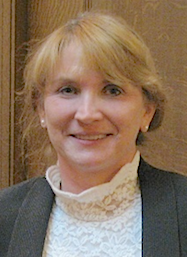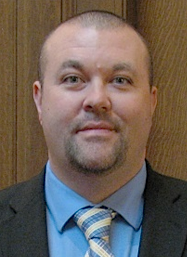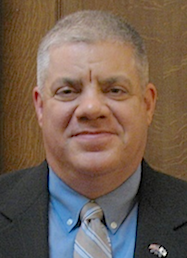Certified Public Manager graduates make government work for Wisconsin citizens
The City of Lake Geneva is considering body cameras for its police officers. Are they worth the investment?
The Portage County Sheriff’s Office and Emergency Management Department both respond to disasters. Would merging them benefit the community?
The Wisconsin Labor and Industry Review Commission needs to streamline the review process for workers’ compensation. How can it facilitate payments to people around the state?
The people who make these decisions must understand the unique challenges of running a government organization. As in the private sector, their ability to manage effectively requires a dedication to lifelong learning and professional growth.
Since 1990, public sector employees interested in such leadership roles have received specialized training through the University of Wisconsin–Madison’s Certified Public Manager (CPM) program. Offered by the Division of Continuing Studies, the program teaches management skills that help government run smoothly — an especially important job in a time of tight budgets.
“CPM students learn the tools that work best for managing public entities and, in that way, are able to give Wisconsin citizens the best value for their tax dollars,” says recent graduate Tracey Schwalbe, general counsel for the Wisconsin Labor and Industry Review Commission. “I now know valuable strategies to handle issues in what one of the classes called the ‘permanent whitewater’ of state agency management.”
The latest graduating class of the program includes a dozen government employees from around the state. They studied cutting-edge management techniques, such as strategic visioning and organizational performance measurement. And they applied what they learned in individual real-world projects, each designed to benefit the community.
Edward Gritzner, the administrative lieutenant in the Lake Geneva Police Department, tackled the issue of body cameras. He conducted research, seeking input from police officers, citizens and elected officials. His project gives Lake Geneva a solid framework for evaluating this new technology.
“The Certified Public Manager program helps us provide the most effective and efficient service, which in turn reduces liability for the local community and the state,” Gritzner says.
In his CPM project, Daniel Kontos, the chief deputy in the Portage County Sheriff’s Office, explored the idea of merging his agency with the Emergency Management Department. Kontos’ study found that consolidating services would better serve Portage County taxpayers.
“It would closely tie the two principal agencies for disaster response,” he says. “It would also give Emergency Management the assets that a small agency is lacking, while giving the Sheriff’s Office the planning capabilities that it lacks.”
Schwalbe evaluated the process for making decisions about workers’ compensation at the Wisconsin Labor and Industry Review Commission. Her plan identifies ways to eliminate waste, shortening the time it takes for citizens to receive a workers’ compensation payment.
Along with their individual projects, the students worked jointly on an initiative for Wisconsin’s county veterans service offices. They put together a toolkit to help staff members modernize their approach to veteran outreach.
“The public employees who enroll in the Certified Public Manager program are passionate about improving government operations and better serving their communities,” says Jeffrey S. Russell, dean of the Division of Continuing Studies. “By mastering the complexities of public sector management, they’ll ensure that Wisconsin government continues to meet our challenges and serve our needs.”







